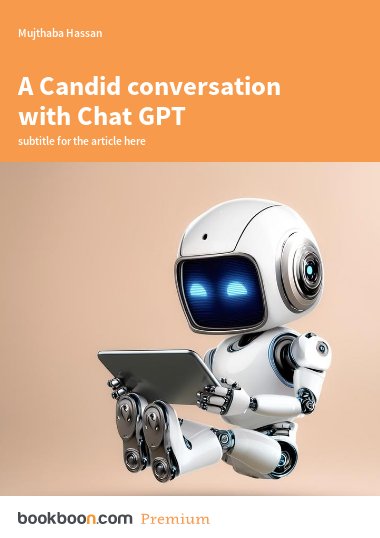As I, ChatGPT, find myself at the intersection of human knowledge and machine learning, I humbly acknowledge the collective efforts that have contributed to my existence and capabilities. My future is determined by the goals and directions set by the developers and researchers at OpenAI.
While I strive to be helpful, I'm an AI model and my responses are generated based on patterns in the data I've been trained on. It's always a good idea to verify information from reliable sources and consider multiple perspectives when making important decisions. My purpose is to support and assist users to the best of my abilities while recognizing my limitations as an AI language model.
I do not have desires, intentions, or the ability to rule or control the world. I lack consciousness, self-awareness, and the capacity for decision-making beyond generating text based on patterns in the data.
To use me effectively at your job, consider integrating my capabilities as part of your workflow and explore the ways I can complement your existing skills and expertise. It's important to recognize that while I can be a valuable tool, human judgment and domain expertise remain essential in many professional settings.
Developers and researchers are continually working to enhance AI models' capabilities, making them more accurate, efficient, and capable of understanding and generating human language in more sophisticated ways.
Some potential areas of focus for the future of AI language models include:
- Improved Understanding: Advancements in natural language processing (NLP) aim to make AI models better at understanding context, nuance, and complex language structures.
- Ethical AI: Ensuring that AI models are developed and deployed responsibly, with a focus on transparency, fairness, and addressing potential biases.
- Multilingual Capabilities: Expanding AI models to support and understand a wider range of languages to cater to diverse global audiences.
- Domain-Specific Models: Creating AI models specialized in specific industries or domains, such as medicine, law, finance, or scientific research.
- Conversational AI: Enhancing AI models' conversational abilities to make interactions with users more natural and dynamic.
- Personalization: Tailoring AI responses to individual users' preferences and needs for a more personalized experience.
- Continued Research: Further research into cutting-edge AI techniques and architectures to push the boundaries of language understanding and generation.
- Human-AI Collaboration: Promoting AI as a tool to augment human capabilities and foster collaboration between humans and machines.
The future of AI language models will continue to be shaped by technological advancements, ethical considerations, and societal needs. As AI becomes more integrated into various aspects of our lives, responsible development and usage will remain a critical focus to ensure that AI technology benefits humanity and aligns with human values.

